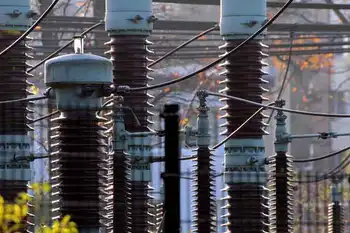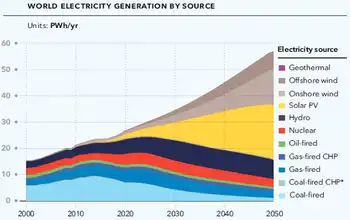Quebec spurs rush in wind power
QUEBEC CITY, QUEBEC - Quebec, long a world leader in the generation of hydroelectric power, is now set to become one of the continent's biggest wind power developers.
Premier Jean Charest approved 15 bids for $5.5-billion in projects that would provide 2,004 megawatts by 2015, calling the development “the largest tender for wind-powered energy ever awarded in a single block in North America.” The wind projects would provide enough power to heat and light 320,000 Quebec homes.
The projects are the second phase of a program that has already seen 1,000 megawatts of wind-powered energy awarded by the province. Quebec currently generates more than 400 megawatts from about a dozen wind farms, mostly located in the Gaspé region.
Wind power energy is part of a five-year strategy by Hydro-Québec, which still draws most of its electricity from power dams, to diversify its energy sources and to further help the province reduce its reliance on fossil fuels.
The public utility plans to sell wind power into the province's energy grid to boost exports to Ontario and the United States.
Quebec's electricity exports have increased to 10.7 terawatt-hours this year from 6.7 terawatt-hours in 2005, generating an extra $1.1-billion in revenue.
The province aims to reduce overall energy consumption by 5.7 per cent by 2015, including cutting back on natural gas by 6.2 per cent and oil consumption by 10 per cent over the same period, said Claude Béchard, the province's Minister of Natural Resources.
Wind power executives elsewhere in Canada were quick to characterize the Hydro-Québec contracts as a vote of confidence in the wind sector that could influence the speed of development elsewhere across the country.
“It helps further validate the entrance of wind power into the mainstream of power generating technology,” said John Keating, chief executive officer of Calgary-based Canadian Hydro Developers Inc., one of Canada's biggest wind farm owners.
“I'm hoping it becomes more normal to see wind turbines on the horizon… and more accepted.”
Quebec is ideally placed for wind projects because it is has so much hydro power, which can be powered up and down relatively easily and meshes well with the variability of wind, said Jason Edworthy, director of stakeholder relations at TransAlta Corp.'s wind arm in Calgary.
The province's good transmission connections with Ontario and the New England states also give it tremendous flexibility, he added, and will allow it to export any excess wind energy.
Quebec is completing construction of a transmission line to Ontario that, as of May, 2009, will have the capacity to carry 1,250 megawatts.
Before work can begin on the next phase of the wind power project, the promoters will need to obtain municipal approvals as well as authorization from the province's environmental assessment board.
Among the big winners were St-Laurent Énergies, a consortium of three companies, which received approval for five projects totalling 954 megawatts, and a partnership between Boralex Inc. and Gaz Métro Ltd. for two projects totalling 272 megawatts.
None of the companies chosen in the first phase of the development were among the bids awarded. Some of the successful companies from the first round were criticized for the way they compensated municipalities and landowners on sites where they installed wind turbines.
Hydro-Québec's president and chief executive officer Thierry Vandal defended the selection process for the second round, saying “the choice of the bids was conducted under a rigorous process approved by the Quebec Energy Board and supervised by the accounting firm Deloitte Inc.”
The average price offered by the eight companies chosen for the 15 projects was 10.5 cents a kilowatt-hour, which according to Mr. Vandal represent “a highly competitive cost for wind power.” Hydro-Québec will pay the promoters 8.7 cents/kwh under the terms of 20-year contracts to be drawn up in the coming months for each project. The contracts will then need to be approved by the provincial energy board.
The winning bids also complied with Quebec government regulations requiring that at least 60 per cent of the total cost of each project be incurred in Quebec. Furthermore, at least 30 per cent of the cost of the wind turbines to be built by two companies, REpower Inc. and Enercon Inc., must be incurred either in Matane or within the larger Gaspé-Îles-de-la-Madeleine region, Mr. Vandal said.
Canadian Hydro's Venterre consortium won two of the new Hydro-Québec contracts, one in the Gaspé and one southeast of Montreal. It already owns the Le Nordais wind farm in the Gaspé region.
Related News

Shell says electricity to meet 60 percent of China's energy use by 2060
SINGAPORE - China may triple electricity generation to supply 60 percent of the country's total energy under Beijing's carbon-neutral goal by 2060, up from the current 23 per cent, according to Royal Dutch Shell.
Shell is one of the largest global investors in China's energy sector, with business covering gas production, petrochemicals and a retail fuel network. A leading supplier of liquefied natural gas, it has recently expanded into low-carbon business such as hydrogen power and electric vehicle charging.
In a rare assessment of the country's energy sector by an international oil major, Shell said China needed to take quick action this…




